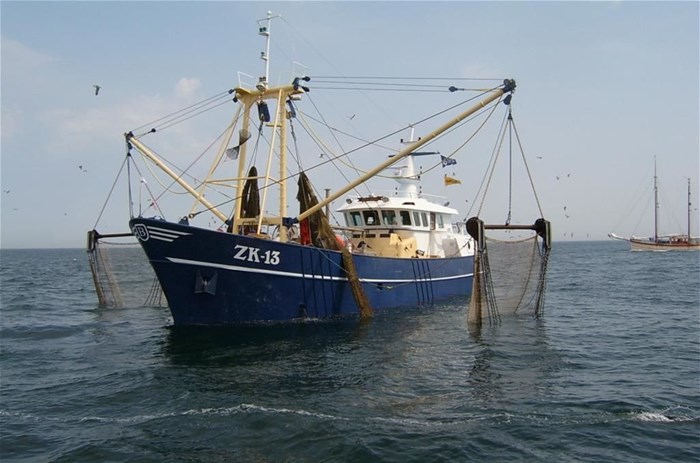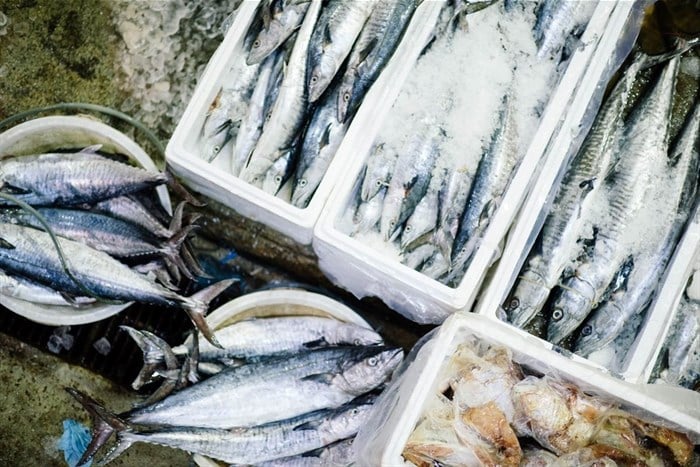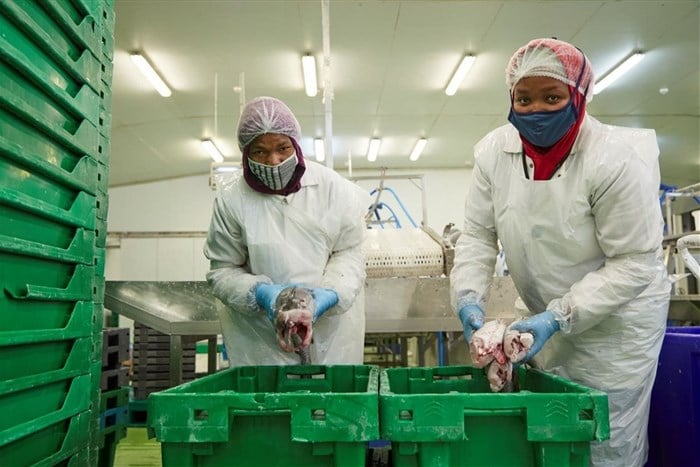
Top stories






More news

















Logistics & Transport
Uganda plans new rail link to Tanzania for mineral export boost








The Department of Forestry, Fisheries and Environment (DFFE) now has less than two weeks to assess all submitted applications, announcing its final lists and Addendum to the General Published Reasons by 31 December 2021. Appeals will be finalised in early 2022.
It’s been a fast race to the finish line, with the timeframes for FRAP 2021 announced only in September 2021. The process had been fraught with delays and general reservations that there would be obstacles hampering the ability of stakeholders to submit their applications timeously.
Preparing their quota application was resource-intensive, but for the most part seamless, says newcomer Atlantis Seafood Products, the largest 100% black-owned frozen and fresh seafood processing and packing factory in South Africa.
ASP Founder Luis Figueiredo commented saying while there were glitches in the DFFE technical system from time to time, these were swiftly dealt with, and the company had no issues in submitting all their application documentation on time.
"Achieving a viable fishing quota would fundamentally change the lives of the 199 previously disadvantaged beneficiaries of the Atlantis Seafood Products Employee Empowerment Trust and their extended families in Atlantis. Consequently, we put a great deal of effort into our application and are pleased to have been able to get it over the line before the deadline of 10 December," says Figueiredo.
In a ground-breaking B-BBEE transaction in 2016, ASP was transferred to the beneficiaries of the trust; 85% of whom are black women and 75% youths from the Atlantis community.
"From humble beginnings in 2003 with just five staff members, we now employ over 350 people, who in turn support over 1,500 people in the previously disadvantaged Atlantis community. Gaining access to a viable fishing quota as part of this year’s FRAP would catapult us forward as a company and deliver real benefits to the previously disadvantaged beneficiaries who will derive 100% of these," explains Figueiredo.

While a relative newcomer to the Frap process, ASP has emerged as one of the country’s largest seafood processing and packing factories in South Africa with the infrastructure and capital to scale quickly. “Our labour-intensive operations also allow us to create more jobs, while adding much more value to the seafood resource than what we would by using machines. It’s a win-win all around. We create more jobs, get far more out of the raw resource and ensure much better quality for most of the major retail brands in South Africa, as well as Bidfoods, which have very specific requirements.”
Frap is reviewed every 15 years with the intention of allocating fishing rights in an equitable process that promotes equality, transformation, job creation, competition and investment.
The allocation of those rights is somewhat like walking a tightrope, however. On the one hand
quota must reach those who can show that they have a clear route to market, a solid infrastructure with the potential to scale quickly, and the ability to add the most value possible to the raw resource. The allocation of these resources assures the future of the fisheries sector.
DFFE must also balance this with the need for transformation and the introduction of new entrants. The question remains: what does true transformation look like?
Guidelines indicating what true transformation looks like and the milestones that need to be achieved should be put in place now for the next Frap applications in 15 years’ time.
"We believe true transformation in the fisheries sector should promote economic benefits to a broader profile, favouring applicants with a bigger previously disadvantaged shareholder profile. Preference should be given to those applicants who can prove a genuine intention of distributing wealth to as broad an ownership profile as possible," says Figueiredo.

With the outcome of Frap fast looming, one thing is sure: all eyes are on the DFFE to see what transformative measurements and guidelines will be put in place to ensure that the fishing sector will embrace a journey of true transformation.
Minister Barbara Creecy and the DFFE have an opportunity to put policies in place that will leave a legacy of opportunity beyond the current 15 years.
The fisheries sector has the potential to make valuable and meaningful changes to its current structure of allocating quota; to be an example for natural resource departments of the changes that can be made to reach environmentally sustainable, economic and transformative goals.
The outcome of the 2020/2021 FRAP will have a ripple effect on Frap 2035/2036 and the Frap of the future. "The time to act swiftly and precisely is now. We must ensure the longevity and prosperity of the fisheries sector, its stakeholders and its people," concludes Figueiredo.